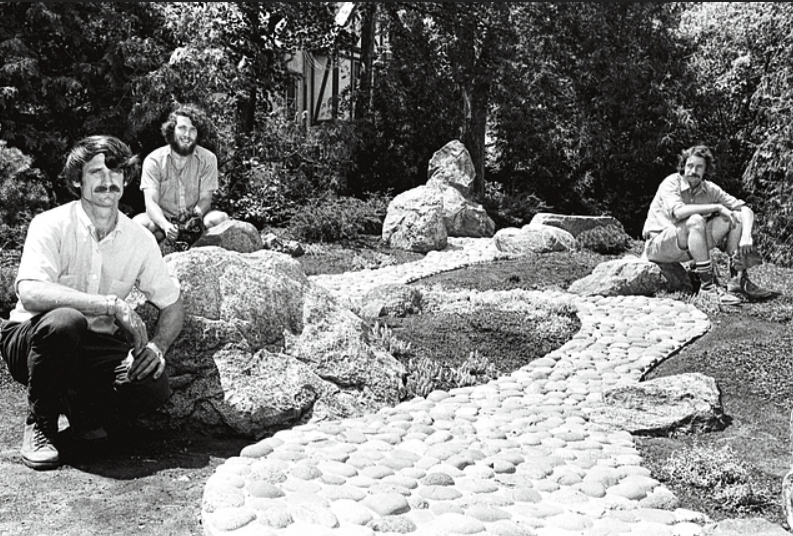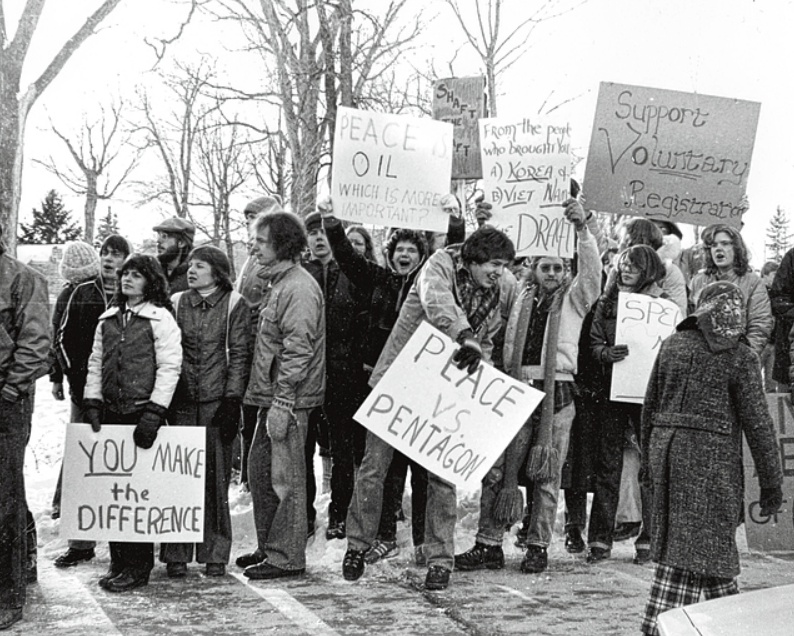The changes in the way Carleton has celebrated Earth Day throughout the years are closely related to changes in environmentalism itself. Earth Day was first established in 1970 by Wisconsin Senator Gaylord Nelson as a way to draw national attention to environmental issues. Amid the anti-war movement and growing public awareness of air and water pollution, the establishment of Earth Day effectively brought environmental protection into the spotlight. Now a focus of national policy, Earth Day aided in the passing of many important milestones in American policy, such as the creation of the EPA, the Clean Air Act, Clean Water Act and the Endangered Species Act.
In 1970, Carleton College celebrated the first Earth Day with a week full of environmentally-focused activities. The event was so successful that it drew national attention, with three students appearing on the Today Show with Hugh Downs.

Photo courtesy of The Carleton Voice.
The interest Earth Day stirred up surrounding environmental protection had lasting impacts on campus. As a response to increasing environmental activism, Carleton transformed 33 acres of farmland into a native habitat restoration project, known today as the McKnight Prairie. Students advocating for clean water uncovered the issue of E. coli in Lyman Lakes from upstream sewers, which was quickly remedied by campus maintenance workers.
Since its powerful debut in the ’70s, Earth Days throughout the years have enabled Carleton to bring attention to some of the most pressing issues facing the environment today.

Photo courtesy of The Carleton Voice.
In 2007, the festivities extended past Carleton, all the way to the Twin Cities, with a public art event on Harriet Island held by an alumni group. Campus and the Northfield community had its own fun, with the CSA and Northfield Community Contra Dance Association hosting an Earth Day Contra Dance in Severance Hall, which soon became a yearly tradition.
In 2009, Carleton celebrated Earth Day by having Bon Appetit serve a “low carbon diet,” limiting the amount of beef, cheese, rice and any food whose production and transportation increase greenhouse gas emissions.
In 2010, Carleton invited the community onto campus for a week of events focused on sustainability and highlighting Carleton’s wind turbine and steam plant.
This year, Earth Day garnered extra attention. The Sustainability Office, in collaboration with other campus groups, put together two weeks of events, as Earth Day coincided with Climate Action Week (CAW). Rebecca McCartney ’21, a Sustainability Assistant (STA) for the Sustainability Office, explained, “CAW usually falls in the seventh week of Winter Term, serving as our big environmental-action-focused week in roughly the middle of the year. It’s a great chance to reinvigorate students during the bleakness of Winter Term by providing new ways for students to engage with environmental stuff going on around campus and in the community.”
However, this year, Climate Action Week was moved to coincide with Earth Day. This provided the Sustainability Office with extra opportunities. “This year, I (along with some other STAs) have been coordinating with other Minnesota students who do sustainability work at their schools to do some statewide actions. A few months ago, some schools started planning a cross-campus ECO Challenge, and we figured we could easily move our Climate Action Week to the April timeframe of the Eco challenge to match up with other schools and generate energy around the state,” she said.
As the climate crisis continues to unfold and students’ priorities change, Carleton’s Earth Day celebrations change to reflect the campus mood regarding environmental issues. Rather than focusing solely on environmental conservation and protection, climate justice and its intersection are now a highlighted theme. This increased focus on justice has led to a variety of events, such as meals using ingredients indigenous to Minnesota served in the dining halls, a documentary screening on Disabilities and climate action, and an educational campaign on sexual violence and pipelines, as well as many other events.
“It was a really great opportunity for the Sustainability Office to work with different offices and organizations on campus to think more critically about what intersection of climate action and climate justice looks like,” McCartney said.










